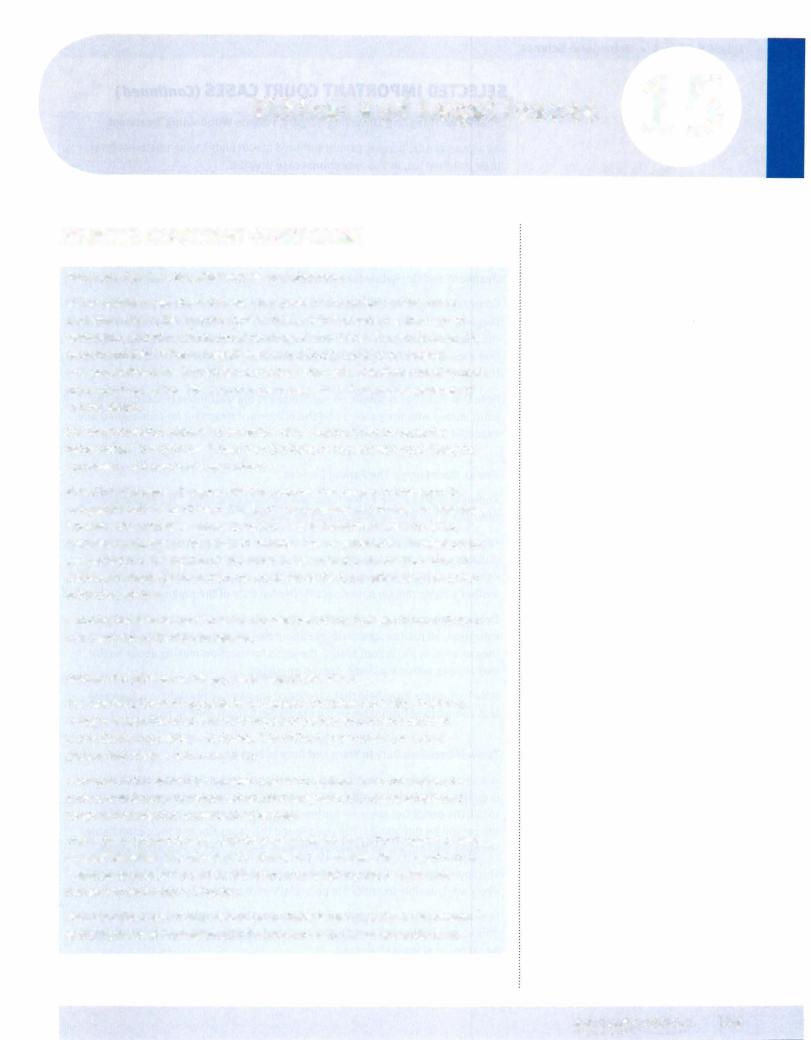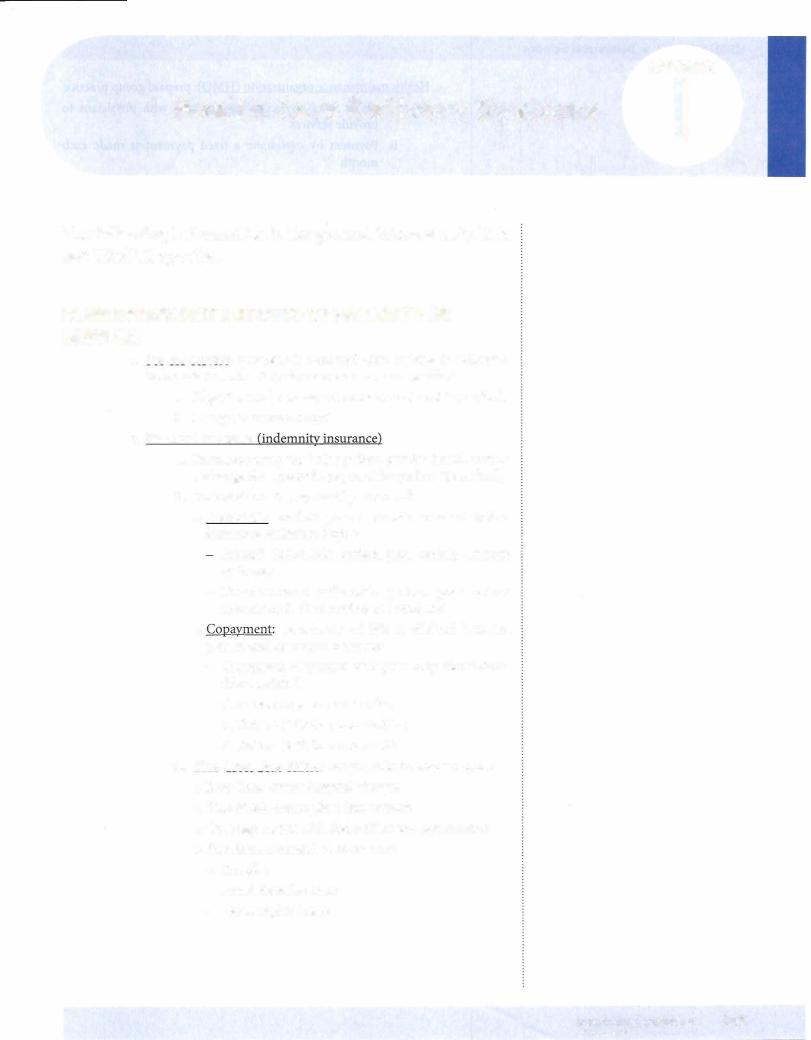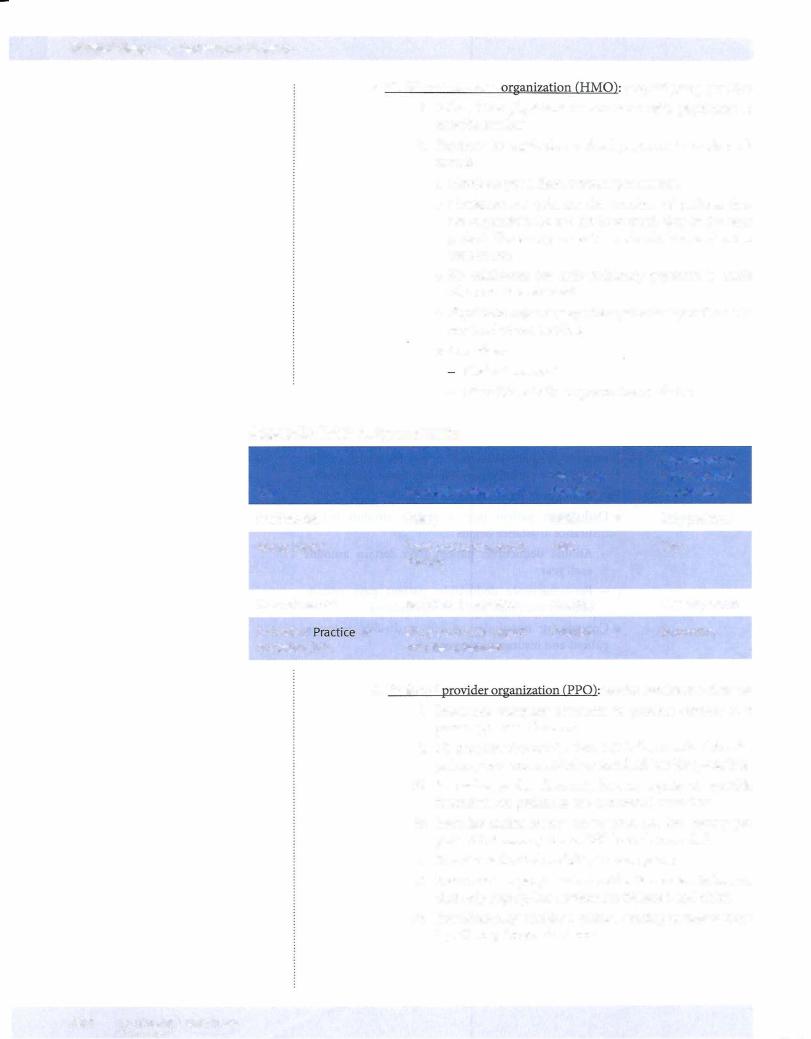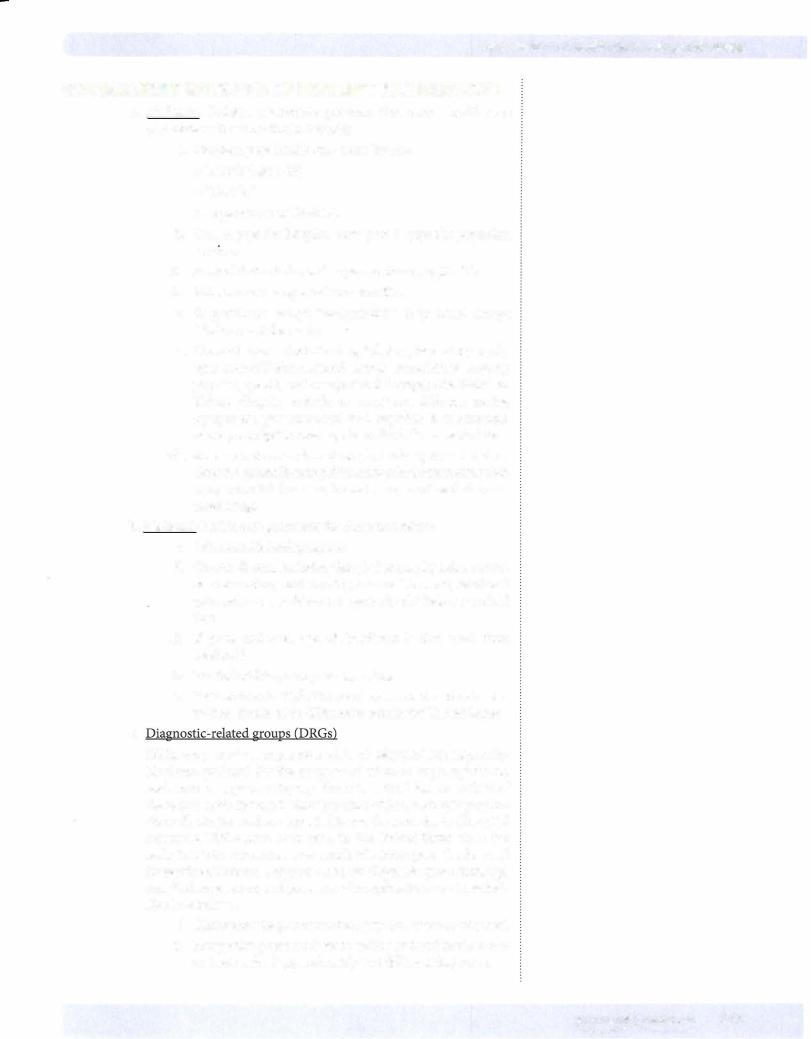

Ethical and Legal Issues 1 5
SELECTED IMPORTANT COURT CASES
Karen Ann Quinlan: Substituted Judgment Standard
In the Quinlan case, Karen Ann was in a persistent vegetative state, being kept alive only by life support. Karen's father asked to have her life support terminated according to his understanding ofwhat Karen Ann would want. The court found that "if Karen herselfwere miraculously lucid for an interval . . .
and perceptive of her irreversible condition, she could effectively decide upon discontinuance ofthe life support apparatus, even if it meant the prospect of natural death."
The court therefore allowed termination of life support, not because the father asked, but because it held that the father's request was most likely the expression of Karen Ann's own wishes.
Substituted judgment begins with the premise that decisions belong to the competent patient by virtue ofthe rights of autonomy and privacy. In this case, however, the patient is unable to decide, and a decision-maker who is the best representative ofthe patient's wishes must be substituted. In legal terms, the patient has the right to decide but is incompetent to do so. Therefore, the decision is made for the patient on the basis ofthe best estimate of his or her subjective wishes.
Note the key here is not who is the closest next of kin, but who is most likely to representthe patient's own wishes.
Brother Fox (Eichnervs Dillon): Best Interest Standard
The New York Court ofAppeals, in its decision of Eichner vs Dillon, held that trying to determine what a never-competent patient would have decided
is practically impossible. Obviously, it is difficult to ascertain the actual (subjective) wishes of incompetents.
Therefore, ifthe patient has always been incompetent, or no one knows the patient well enough to render substituted judgment, the use of substituted judgment standard is questionable, at best.
Under these circumstances, decisions are made for the patient using the best interest standard. The object ofthe standard is to decide what a hypothetical "reasonable person" would decide to do after weighing the benefits and burdens ofeach course of action.
Note here the issue ofwho makes the decision is less important. All persons applying the best-interest standard should come to the same conclusions.
MEDICAL 195

USMLE Step 1 • Behavioral Science
SELECTED IMPORTANT COURT CASES (Continued)
Infant Doe: Foregoing Lifesaving Surgery, Parents Withholding Treatment
As a general rule, parents cannot withhold lifeor limb-saving treatment from their children. Yet, in this exceptional case they did.
Baby Boy Doe was born with Down syndrome (trisomy 21) and with a tracheoesophageal fistula. The infant's parents were informed that surgery to correct his fistula would have "an even chance of success." Left untreated, the fistula would soon lead to the infant's death from starvation or pneumonia. The parents, who also had two healthy children, chose to withhold food and
treatment and "let nature take its course."
Court action to remove the infant from his parents' custody (and permit the surgery) was sought by the county prosecutor. The court denied such action, and the Indiana Supreme Court declined to review the lower court's ruling. Infant Doe died at 6 days of age, as Indiana authorities were seeking intervention from the U.S. Supreme Court.
Note that this case is simply an application ofthe best-interest standard. The court agreed with the parents that the burdens oftreatment far outweighed any expected benefits.
Roe vs Wade(1973): The Patient Decides
Known to most people as the "abortion legalizing decision," the importance of this case is not limited to its impact on abortion.
Faced with a conflict between the rights ofthe mother versus the rights of the putative unborn child, the court held that in the first trimester, the mother's rights are certainly paramount, and that states may, ifthey wish, have the mother's rights remain paramount for the full term of the pregnancy.
Because the mother gets to decide, even in the face of threats to the fetus, by extension, all patients get to decide about their own bodies and the health care they receive. In the United States, the locus for decision-making about health care resides with the patient, not the physician.
Note that courts have held that a pregnant woman has the right to refuse care (e.g., blood transfusions) even if it places her unborn child at risk.
Tarasoff Decision: Duty to Warn and Duty to Protect
A student visiting a counselor at a counseling center in California states that he is going to kill someone. When he leaves, the counselor is concerned enough to call the police but takes no further action. The student subsequently kills the person he threatened. The court found the counselor and the center liable because they did not go far enough to warn and protect the potential victim.
The counselor should have called the police and then should also have tried in every way possible to notify the potential victim ofthe potential danger.
In similar situations, firsttry to detain the person making the threat, next call the police, and finally notify and warn the potential victim. All three actions should be taken, or at least attempted.
196 MEDICAL






USMLE Step 1 • Behavioral Science
What should the physician do in each ofthese situations?
•Patient refuses lifesaving treatment on religious grounds? (Don't treat)
•Wife refuses to consent to emergency lifesaving treatment for unconscious husband citing religious grounds? (Treat, no time to assess substituted judg ment)
•Wife produces card stating unconscious husband's wish to not be treated on religious grounds? (Don't treat)
•Mother refuses to consent to emergency lifesaving treatment for her daugh ter on religious grounds? (Treat)
•What if the child's life is at risk, but the risk is not immediate? (Court takes guardianship)
•From whom do you get permission to treat a girl who is 17 years old? (Her guardian)
Fromwhom does the physicianobtainconsent in each case?
•A 1 7-year-old girl's parents are out ofthe country and the girl is staying with a babysitter? (If a threat to health, the physician can treat under doctrine of in locum parentis)
•A 17-year-old girl who has been living on her own and taking care ofherself? (The girl herself)
•A 1 7-year-old girl who is married? (The girl herself)
•A 1 7-year-old girl who is pregnant? (Her guardian)
•A 16-year-old daughter refuses medication but her mother consents, do you write the prescription? (Yes)
•The 16-year-old daughter consents, but the mother refuses? (No)
•The mother of a minor consents, but the father refuses? (Yes, only one per mission needed)
•When should the physician provide informed consent? (Always)
•Must informed consent be written? (No)
•Can written consent be revoked orally? (Yes)
•Can you get informed consent from a schizophrenic man? (Yes, unless there is clear behavioral evidence that he is incompetent)
•Must you get informed consent from a prisoner if the police bring in the prisoner for examination? (Yes)
202 MEDICAL

Chapter 15 • |
Ethical and Legal Issues |
Review Questions
1 18. A 7-year-old girl is brought to the hospital by a woman who has been entrusted with her care while the girl's parents are in Mexico for vacation. The girl has sustained a non-life-threatening but serious injury during play that has almost completely severed one of her fingers from her left hand. The consensus of the physicians is that with prompt action the finger can be reattached with minimal permanent loss of movement for the child. Without prompt action, the use of the finger is likely to be lost. However, the attending physician is concerned about proceeding without the permis sion of the parents. The best course of action would be to
(A)try to contact the parents to get their permission to perform the procedure
(B)seek a legal injunction allowing the operation
(C)operate at once, citing the doctrine of therapeutic privilege
(D)seek the consent for the operation from the woman in whose care the girl was left
(E)seek further confirmation from additional specialists in this type of surgery
1 19. During the second year of residency training, you discover that the chief resident on your rotation is using amphetamines on a regular basis in order to stay alert when on call. When you mention your concern to the resident, he tells you, "Mind your own business. I'm not one ofyour patients." At this point, your best action would be to
(A)monitor the chief resident over the next few weeks to be sure that there is no danger to patient care
(B)talk with other residents and see if they share your concern
(C) contact the hospital ethics committee for advice and guidance
(D)contact the American Medical Association
(E)seek legal counsel
(F)schedule a meeting to speak with the residency program director
(G)lodge a complaint with the state licensing board
(H)ask the nursing staff if they have noticed anything unusual about the chief resident
MEDICAL 203

USMLE Step 1 • Behavioral Science
120. While riding the hospital elevator to visit one of his patients, an internal medicine physician overhears two residents discussing a surgical case. The case involves a 45-year-old male who received a lymph node biopsy. The biopsy was negative. However, during the procedure, the resident performing the surgery nicked the large intestine. The mistake was noticed and quickly corrected. The resident was overheard to say, "It's alltaken care of. We didn't think we needed to worry the patient by mentioning this little glitch:' After overhearing this conversation, what action should the physician take?
(A)Ask the nurse for the patient's chart to confirm that the mistake was benign
(B)File a formal complaint with the hospital ethics committee
(C) File a formal complaint with the state licensing board
(D)Look up the patient and check on how he is doing
(E)Reprimand the residents on the spot and demand to speak with their supervisor
(F)No harm was done, the physician need do nothing
(G) Speak with the chairman of internal medicine
(H)Speak with the chairman of surgery
(I)Tell the residents that they need to inform the patient and suggest the best method to have the discussion
121. A 42-year-old woman has an annual physical exam, including a mammo gram. She announceswith great excitement that she willbe getting married in 3 months and invites her physician to attend the wedding. A week later, the results of the mammogram reveal a previously undetected mass. At this point, what action should the physician take?
(A)Call the patient immediately and inform her of the findings of the mammogram
(B)Have a nurse with experience in this area call the patient and discuss the findings
(C)Make an appointment to discuss the mammogram finding with the patient within a week of receiving the results
(D)Postpone informing the patient of the findings until after the wedding so as not to upset her
(E)Schedule the patient for a confirmatory mammogram after the wedding
(F)Schedule an appointment to discuss the findings with the patient and her fiance before the wedding
204 MEDICAL

Chapter 15 • |
Ethical and Legal Issues |
122.A 68-year-old man is seen by his physician for a monthly appointment to monitor his diabetes. The physician provides encouragement with his diet and adjusts his medication dosage. Several days later, the patient's wife tele phones the physician and asks about her husband's condition and what she should do to keep him on his diet. What action should the physician take?
(A)Have the nursing staff call her back and explain the dietary regime
(B)Give her an internet address where information about diabetes can be found (C) Obtain permission from herhusband before discussinghis diabetes with her
(D)Schedule an appointment to discuss the issues she raises face-to-face
(E)Ask her if her husband requested that she call
(F)Offer her a referral to another physician so she can be checked for diabetes
123.A 75-year-old man is diagnosed with severe blockage in several cardiac arteries. The standard procedure for such cases is by-pass surgery that has a high rate of success. Pharmacologic options are also available, but at best will merely maintain the patient and will not remove the life-threatening blockage. Life expectancy for the pharmacologic intervention is substan tially shorter than the surgical one. When presented with these available treatment options and the associated life expectancies, the patient declines the surgery and wants to be treated by pharmacologic means. The physician strongly disagrees with the patient's decision. Faced with this decision, the physician's next course of action should be to
(A)meet with the patient's family and try to convince them to change the patient's mind
(B)review the treatment options again with the patient and tell him to take a week to think it over
(C) schedule the patient for a consultation with a colleague and ask the colleague to advise the patient to choose the surgery
(D)schedule the patient for psychological evaluation
(E)start the pharmacological treatment
(F)tell the patient that you cannot agree with his choice, and cannot con tinue to be his physician if he insists on it
(G)tell the patient that you are required to select the treatment option with the best outcome and schedule him for surgery
MEDICAL 205

USMLE Step 1 • Behavioral Science
124. A 54-year-old man, who makes his living as a bus driver, was sent by his company for a physical exam. The physical exam turns up nothing abnor mal, although the man reports ongoing fatigue. When questioned in detail, the man professes no difficulty going to sleep. In fact, he often finds himself nodding off during the day. He also reports hallucinations as he is falling asleep and sometimes is unable to move when he wakes up in the morning. The physician suspects that the man suffers from a sleep disorder. When informed of this diagnosis, the patient requests that this information be kept confidential from his employer. At this point, the physician's best course of action is to
(A)arrange for pharmacologic treatment for the patient and maintain his confidentiality
(B)do not inform the employer, but negotiate with the patient to take time off from work on medical leave pending outcome of treatment
(C) inform his employer of his diagnosis and begin treatment
(D)refer him to a local sleep center for full evaluation and inform the employer based on the results of this workup
(E)try to obtain the patient's permission to inform the employer and schedule him for treatment
(F)schedule him for a psychiatric consult to rule out malingering
125.A 66-year-old man recently diagnosed as having prostate cancer is sched uled for an appointment to discuss his treatment options. The attending physician designates a second-year resident to meet with the patient and to obtain informed consent before proceeding with treatment. The resident meets with the patient and returns with signed informed consent forms, indicating that the patient has elected the radiation option to treat his cancer. Reviewing the conversation with the resident, the attending physi cian discovers that the resident did not mention a relatively new surgical procedure as a possible treatment option. At this point, what action should the attending physician take?
(A)Convene a seminar of all residents in this rotation and review the informed consent rules
(B)Exclude the resident from obtaining informed consent from patients until he has reviewed the informed consent rules
(C) Have all of the residents on the rotation accompany you while you visit the patient and demonstrate the right way to obtain informed consent
(D)Informed consent has been obtained, but instruct the resident that in the future he should mention the surgical procedure as an option to the patient
(E)Informed consent has been obtained; schedule the patient for the radiation treatment to which he has consented
(F)Instruct the resident to go back and talk to the patient again, this time mentioning the new surgical procedure
(G)Visit the patient personally and obtain informed consent again, this time mentioning the new surgical procedure
206 MEDICAL






